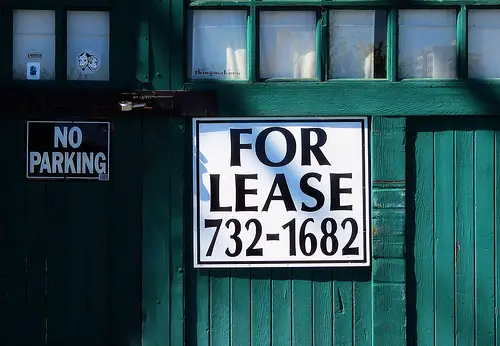 Most businesses benefit from leasing property, rather than owning it. But for some it’s not entirely obvious why leasing is the better option. The truth is, there are four big reasons why leasing can often be more beneficial than owning:
Most businesses benefit from leasing property, rather than owning it. But for some it’s not entirely obvious why leasing is the better option. The truth is, there are four big reasons why leasing can often be more beneficial than owning:
It’s cost effective. The simple fact is that most businesses can’t afford to buy or build a new building when they’re first starting out. It’s expensive. Leasing lets you get up and running with little or no money out of pocket. This is incredibly important with a fledgling business because it’s so fragile, as the slightest interruption in cashflow can send the company spiraling out of control.
No repair costs. Another reason to consider commercial real estate for lease is the fact that there are no repairs that have to be paid out of pocket. You get to defer all expenses to the property owner.
No down payments. When you want to lease a place, you simply ask about the rent, sign a contract, and move in. Many commercial properties allow for significant remodeling too, so its like owning, except you don’t have any of the responsibilities.
It’s more flexible. It’s not uncommon for companies to outgrow their building in the first few years as they grow and expand. When this happens, you don’t want to be stuck in the building you just bought. When you lease, you can take the cash that you saved, and hopefully put back into the business, and use it to move out of your starting office into a larger one. On the other hand, if you bought office space, you’d have to either pay for the expansion project yourself or sell the office and buy a new one; this is very expensive, and not a great use of company resources.
The good news is, there are a few ways that you can save money on rent. Here are four of the best:
Negotiating Your Lease Term
Negotiating expenses should be your first attempt as saving on the cost of rent. A direct rental negotiation prevents you from paying too much for the basic rental of the office or building. Don’t be afraid to ask for less than what the property manager or owner initially asked for.
You may have more clout if you are a high revenue tenant and you would function as an anchor store in a multi-unit commercial property.
But, when you’re first starting out, you can still negotiate rent based on the idea that the landlord would rather have a paying tenant than a non-paying one. And, if the rent is not sustainable, then you may have to break your lease early.
You could even work out a deal where you pay a deep discount for the first year, with a guaranteed increase in rent over the next two years to make up for the landlords loss. If you do this, expect the property owner to want a multi-year contract with provisions to collect on any unpaid years in the contract. This is a risk for you, but it could allow you to get up and running when you’re short on cash right now.
Comb Over The Fine Print
Make sure you’re not getting hit with any unusual fees in the fine print. It should go without saying that many landlords include fees that you might not expect, like Common Area Maintenance (CAM) fees or fees for shared spaces.
Protect Yourself With Clauses
Ask to include subclauses for subleasing, exclusivity, and co-tenancy. Subleasing lets you sublease your office to another building if you need to leave before the lease has ended. Exclusivity prevents competitors from being leased out next to you, and co-tenancy protects your foot traffic if an anchor store leaves.
Ask About Utilities and Watch Out For Hidden Costs
Ask about utilities. For the most part, you’re going to find that you are responsible for paying them, but that’s not exactly what you want to know. You want to know how the utilities are split up. In most arrangements where there’s a single tenant (you) in the building, it’s unequivocal; you’re paying for the utilities you use.
But, in complexes where there are multiple tenants, make sure you understand how the utilities are split up. Some buildings are not wired so that individual rooms are on a separate meter. Or, in some older buildings that were converted into multi-unit rentals, the wiring may be shared by several new offices.
So, you could end up paying part of another company’s utilities.
Obviously, this isn’t fair, but you want to know what you’re getting into before you get into it.
Another thing to look out for when researching how utilities are charged is are they metered or are utilities assessed by the square footage? You could end up paying more or less one way versus the other. Ideally, you want to pay less for utilities, so be sure to include this in your negotiations.
Photo Credit: Scott Hingst

The term and rent that someone will pay is his first negotiation point. I think that the trick here is not to over-commit while giving himself some flexibility for the long term. It’s generally recommended that small businesses negotiate one to two year leases with the option to renew should he needs to.